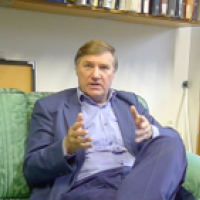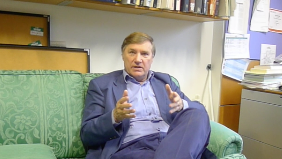
Laws versus outcomes: The podcast

John D. Barrow.
The Universe, so physicists tell us, is governed by a few basic laws of nature. But how can that be? How can the wonderfully complex world around us be governed by a few simple rules? We asked mathematician and cosmologist John D. Barrow from the University of Cambridge, who explains what differentiates laws of nature from their outcomes, how the complexity of the world conceals elegant mathematical symmetries, and how chaos can arise from order.
To read articles based on this interview or see a video of it, see Stuff happens: Laws versus outcomes. This podcast is part of our Stuff happens project, run in collaboration with FQXi.
You can listen to the podcast using the player above, and you can listen and subscribe to our podcast through Apple Podcasts,
Spotify and through most other podcast providers via podbean.